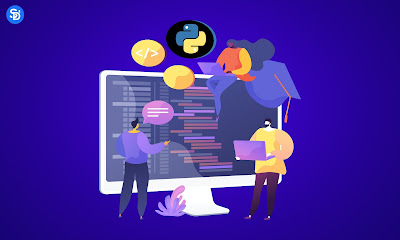Explore Possibilities with Python App Development
In the fast-paced digital age, where businesses and individuals alike are seeking innovative solutions, a leading Python development company understands the significance of Python app development. It emerges as a versatile and powerful avenue for creating a wide range of applications. Python's simplicity, readability, and extensive libraries have gained immense popularity among developers as a go-to programming language for app development. In this article, we will delve into the world of Python app development offered by our Python development company, exploring its benefits, use cases, and the reasons behind its widespread adoption.
The Python Advantage
Python has gained a reputation as a user-friendly programming language that emphasizes clean and concise code. Its simplicity doesn't compromise its capabilities, making it an excellent choice for app development. Here are some advantages that set Python apart:
Ease of Learning and Use: Python's syntax is easy to grasp, even for those new to programming. Its straightforward and intuitive nature allows developers to write code efficiently and maintain it with ease.
Rich Libraries and Frameworks: Python's extensive standard library and a multitude of frameworks cater to various development needs. Flask, Django, and Pyramid are popular choices for web applications, while Kivy and PyQT facilitate graphical user interface (GUI) app development.
Cross-Platform Compatibility: Python apps are inherently cross-platform compatible, allowing developers to write code that can run seamlessly on different operating systems without significant modifications.
Rapid Development: The concise syntax and availability of third-party libraries enable developers to create applications quickly. This rapid development cycle is particularly valuable for startups and projects with tight deadlines.
Community and Support: Python boasts a vibrant and active community that contributes to its continuous growth. Developers can access a wealth of resources, forums, and documentation to troubleshoot issues and seek advice.
Scalability: Contrary to the misconception that Python is not suitable for large-scale applications, it can be used to build scalable solutions when paired with appropriate architecture and design patterns.
Diverse Use Cases
Python's versatility extends its reach to a wide array of applications, making it a valuable tool for different industries. Let's explore some of the prominent use cases of Python app development:
Web Applications: Python's web frameworks like Django and Flask have revolutionized web development. From content management systems (CMS) to e-commerce platforms, these frameworks facilitate the creation of robust, feature-rich web applications.
Data Science and Analytics: Python's rich ecosystem of libraries, including NumPy, Pandas, and Matplotlib, empowers data scientists to analyze and visualize data efficiently. Machine learning frameworks like TensorFlow and scikit-learn have also contributed to Python's dominance in this field.
Scientific Computing: Python's libraries enable researchers and scientists to solve complex mathematical and scientific problems. Its applications range from simulations and data analysis to research in various scientific disciplines.
Artificial Intelligence and Machine Learning: Python has become the preferred language for AI and ML development due to libraries like TensorFlow, Keras, and PyTorch. These libraries simplify the implementation of intricate machine learning models.
Internet of Things (IoT): Python's lightweight footprint makes it suitable for IoT projects. It can be used to develop applications that interact with IoT devices, collect sensor data, and control connected devices.
Game Development: Python's simplicity and the Pygame library make it an accessible choice for game development, especially for indie developers creating 2D games and prototypes.
Automation and Scripting: Python's scripting capabilities streamline repetitive tasks and automate workflows across various domains, enhancing efficiency and productivity.
Python in Action: Case Studies
Instagram: This social media giant was built on Django, a Python web framework. Python's scalability and flexibility allowed Instagram to handle its rapid user growth effectively.
Dropbox: Dropbox's client application was developed primarily using Python. The language's cross-platform compatibility played a pivotal role in ensuring a consistent user experience across different devices and operating systems.
Spotify: Spotify employs Python for backend services, data analysis, and machine learning tasks. Its versatile nature supports Spotify's complex requirements while maintaining development efficiency.
Future Trends and Innovations
Python's relevance in the app development landscape is poised to grow further with emerging trends and innovations:
AI-Integrated Apps: As AI continues to shape industries, Python's dominance in machine learning and AI development will enable the creation of smarter and more intuitive applications.
Edge Computing: With the rise of IoT, edge computing requires lightweight programming languages like Python to process data at the device level efficiently.
Quantum Computing: Python's adaptability might lead to its integration with quantum computing platforms, expanding its capabilities into the realm of advanced computing.
Extended Reality (XR): Python's ease of use can contribute to the development of applications in the XR space, including virtual reality (VR) and augmented reality (AR).
Conclusion
Python app development is a dynamic field that continues to evolve alongside technological advancements. A leading Python web development company understands the potential of Python's simplicity, versatility, and community support. This makes it an ideal choice for developers aiming to build various applications, from web and mobile apps to data analysis tools and more. As industries embrace digital transformation, Python's role, especially in the expertise of our Python web development company, will remain pivotal in shaping the future of app development. It fosters innovation and enables developers to explore new possibilities, ensuring your projects stand out in the competitive digital landscape.




Comments
Post a Comment